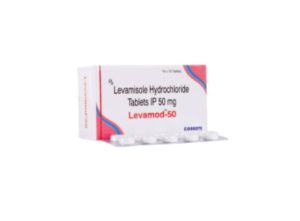
Here is a detailed overview of Amoxicillin + Carbocisteine, a combination used in the treatment of respiratory infections:
Description:
Amoxicillin is a broad-spectrum beta-lactam antibiotic used to treat bacterial infections, while Carbocisteine is a mucolytic agent that helps reduce the viscosity of mucus, making it easier to expel. The combination is used to manage infections accompanied by thick mucus production, such as in chronic bronchitis.
Brand Names:
- Mucocist (combination product)
- Amoxil-Muco (combination product)
- Amoxicomb (combination product)
- Mucolin (Carbocisteine product)
- Amoxicillin + Carbocisteine (generic combination)
Available Forms & Strengths:
- Capsules/Tablets:
- Amoxicillin: 250 mg, 500 mg
- Carbocisteine: 250 mg, 500 mg
- Oral Suspension:
- Amoxicillin: 125 mg/5 mL, 250 mg/5 mL
- Carbocisteine: 250 mg/5 mL, 500 mg/5 mL
Uses:
The combination of Amoxicillin and Carbocisteine is typically used for:
- Chronic Bronchitis: To treat bacterial infections while reducing mucus viscosity.
- Chronic Obstructive Pulmonary Disease (COPD): In cases where bacterial infections exacerbate symptoms.
- Sinusitis: To manage infections and reduce mucus production.
- Pneumonia: In cases where thick mucus is a significant problem.
Side Effects:
- Amoxicillin:
- Gastrointestinal: Nausea, vomiting, diarrhea.
- Allergic Reactions: Rash, itching, anaphylaxis (rare).
- Superinfections: Overgrowth of non-susceptible organisms.
- Carbocisteine:
- Gastrointestinal: Nausea, diarrhea, abdominal discomfort.
- Allergic Reactions: Rash, urticaria (rare).
- Miscellaneous: Headache, dizziness.
Dose:
- Adults:
- Amoxicillin: Typically 500 mg every 8 hours or 875 mg every 12 hours.
- Carbocisteine: 750 mg to 1.5 g per day, divided into 3 doses.
- Children:
- Amoxicillin: 20-40 mg/kg/day divided into 3 doses.
- Carbocisteine: 250 mg to 500 mg per day, depending on age and condition.
Contraindications:
- Amoxicillin:
- Hypersensitivity to penicillins or other beta-lactam antibiotics.
- Carbocisteine:
- Hypersensitivity to Carbocisteine.
- Caution in patients with a history of gastrointestinal ulcers or bleeding.
Drug Interactions:
- Amoxicillin:
- May reduce the effectiveness of oral contraceptives.
- Allopurinol can increase the risk of rash.
- Methotrexate clearance may be reduced.
- Carbocisteine:
- Generally considered to have fewer drug interactions.
- May interact with other mucolytic or cough medications.
Warnings:
- Amoxicillin:
- Risk of allergic reactions and superinfections.
- Adjust dose in renal impairment.
- Carbocisteine:
- Use with caution in patients with a history of peptic ulcers.
- Overuse can lead to gastrointestinal discomfort.
Special Considerations:
- Pregnancy: Amoxicillin is classified as Category B; Carbocisteine is generally considered safe but should be used under medical supervision.
- Breastfeeding: Both drugs are usually considered safe, but monitoring for any adverse effects in the infant is recommended.
- Pediatric Use: Amoxicillin is commonly used in children; Carbocisteine is also used in pediatric formulations but should be dosed according to weight and age.
Doctor Advised:
- Complete the full course of antibiotics as prescribed.
- Inform your doctor of any known allergies to penicillins or Carbocisteine.
- Report any unusual side effects, such as persistent gastrointestinal issues or allergic reactions.
Conclusion:
Amoxicillin + Carbocisteine is a combination therapy designed to treat bacterial infections while managing mucus production and viscosity. This combination is particularly useful in respiratory conditions where mucus buildup complicates the infection. The regimen should be followed as prescribed, with attention to potential side effects and drug interactions.







